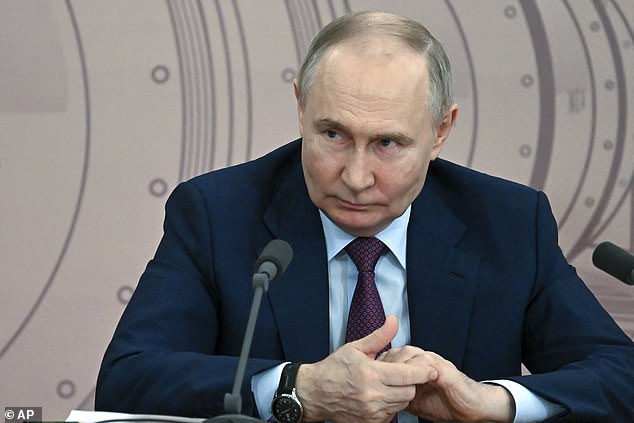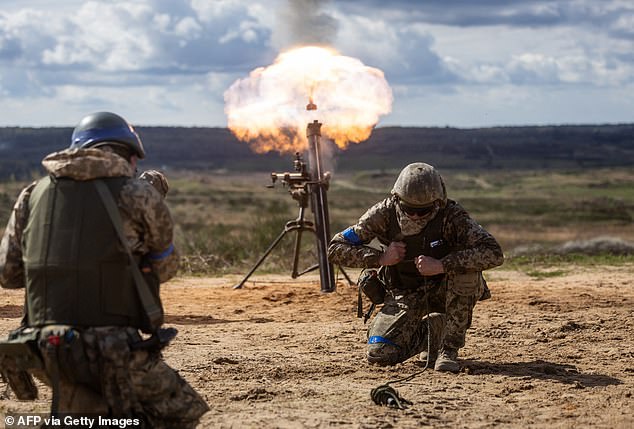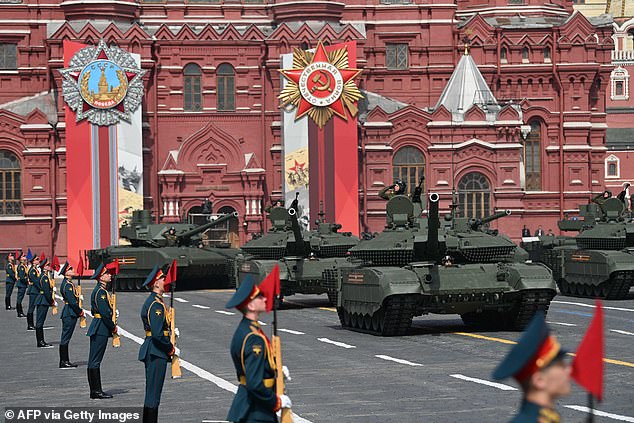Russia, Iran, China and Israel are considered to have the most negative influence of 14 countries and institutions around the world, and global perceptions have been significantly impacted over the past five years, according to new research.
A global survey of some 23,800 people on five continents found that about half now believe Russia uses its influence for “bad” on the world stage, and that Iran, Israel and China also show divisions in their policies.
Public opinion has changed significantly over the past five years, with 2019 comparative polls revealing a 22 percent increase in the proportion who feel Russia has a largely negative influence on the world.
While global conflicts and fights for control of strategic corridors and resources may have soured the public’s view of these global players, the perception of Britain and the United States remains largely the same.
The poll by Ipsos and the Institute of Politics at King’s College London found that 26 per cent of the global public believe Britain uses its influence for good, ranking only behind Canada and Germany.
Russian T-90M and T-14 Armata tanks parade through Red Square during the dress rehearsal of the Victory Day military parade in central Moscow on May 7, 2022.

Russian President Vladimir Putin attends a meeting of the Council for Science and Education at the Joint Nuclear Research Institute in Dubna today.

Iranian protesters burn a barricade during a protest for Mahsa Amini, a woman who died in custody after being arrested by the republic’s ‘morality police’, in Tehran, September 2022.
By surveying thousands of international respondents about their perceptions of foreign nations, researchers found significant changes in the way some of the world’s major players are viewed.
Forty-eight percent said they believe Russia uses its influence in the world for “bad,” and only nine percent believe it is using its power for “good.”
This put the Eastern European giant ahead of all others by a considerable margin, followed more closely by Iran.
As many as 37 percent felt Iran was using its influence for “evil,” compared to just eight percent who believed it was working for the common good.
Iran scored the lowest of the 14 nations and institutions examined on this front, although 17 percent felt Iran was using its influence for good and bad purposes.
Israel, in the midst of a devastating conflict with Hamas in Gaza, ranked above only Russia and Iran in perceptions of doing good in the world, at 12 percent.
About a third of the 23,800 respondents believed Israel was causing more harm worldwide, and 21 percent perceived some balance.
The “mostly good” rating has fallen by one percentage point since the last survey, while the “mostly bad” rating increased by nine percent.
China and Russia also saw significant increases in the number of people judging their actions as “mostly bad,” according to respondents from 23 countries that participated in both waves.
The number of people who see China as having a negative influence increased by 10 percentage points, while those concerned about Russia increased by almost a quarter.

People with Iranian flags gather to hold a rally in support of Iran’s attack on Israel in Tehran, Iran, on April 14.

Members of the Islamic Revolutionary Guard Corps (IRGC) march during the annual pro-Palestinian Al-Quds, or Jerusalem, Day demonstration in Tehra. April 29, 2022

A ball of fire and black smoke rises moments after an Israeli airstrike targeted a residential building in the town of Bureij, central Gaza Strip, on June 3, amid the conflict with Hamas.
Canada ranked first among nations perceived to be using their influence for good, although perceptions had fallen eight percentage points since the last count.
The UN, charged with maintaining international peace and security, fell just behind the UN in its reputation for doing good.
By country, Great Britain ranked third, only behind Canada and Germany, a country that 26 percent perceive is doing good around the world.
The EU and NATO scored roughly the same in perceptions of having a positive influence, at 28 percent and 27 percent respectively.
Britain has offered significant donations to Ukraine’s resistance effort against the Russian invasion since 2022.
It has also imposed sanctions on Iran and China, although it remains an ally of Saudi Arabia and Israel, both countries perceived to have a more negative influence on the world today.
But Britons themselves are now less likely to see their country as a positive force around the world.
Between 2019 and 2024, this figure fell eight percentage points, from 40 percent to 32.
Americans also expressed reservations: the number of people who appreciate British influence in the world fell 13 points.
France came just behind Britain, with a quarter of respondents seeing the country as having a positive influence.
The “mostly good” rating fell five percentage points since the last survey, while the “mostly bad” rating rose three.
To gain a wide range of views, Ipsos interviewed almost 24,000 adults in 31 countries between March and April this year.
The research gathered opinions on some of the world’s most prominent players on the global stage in North America, South America, Europe, Africa and Asia.
The global survey was conducted to mark the year 2024. Fulbright Distinguished Lecture by Dr. Fareed Zakaria, Washington Post columnist and CNN anchor, on June 14.

British Prime Minister Rishi Sunak attends a meeting with Ukraine’s President Volodymyr Zelenskyy during the first day of the 50th G7 summit on June 13.

A British Forces Challenger 2 main battle tank during NATO’s Spring Storm exercise in Kilingi-Nomme, Estonia, on Wednesday 15 May.

Ukrainian soldiers fire a mortar during military training with French soldiers in Poland, April 4, 2024.
Although the survey did not explore the causes of the change in perceptions, the study authors provided some insights.
Dr Zakaria said: ‘The results of this survey are fascinating. All over the world, at the end of the day, people still want liberalism in every sense.
‘What surprised me was that the international model of good governance is the European Union. And the great irony is that while people in most countries have a more favorable perception of the United States than they did five years ago, the only place where this was not true was the United States itself.
“It seems that it is the heirs of the liberal tradition who have the most doubts about their role in the world.”
Professor Bobby Duffy, director of the Policy Institute at King’s College London, said: “We live in an increasingly multipolar world, with very different views on how nations act and whether their models should be emulated in our own countries. countries, which is destined to test international relations.
“It is particularly important that people in liberal democracies recognize how increasingly diverse these opinions are around the world.”


